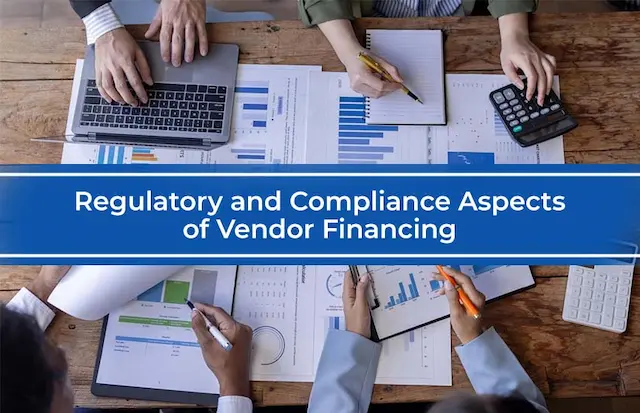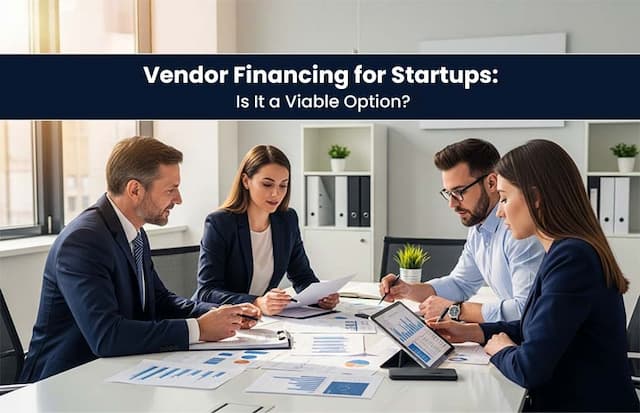Many small business buyers often need to gather funds from various sources to complete a business acquisition. One valuable financing option is vendor financing, also known as vendor take-back (VTB). In this arrangement, the business seller agrees to accept a portion of the sale price through a series of payments, including interest. Essentially, the seller extends a loan to the buyer, often secured against the business’s assets.
When the deal is finalized, the seller receives the purchase price, reduced by the borrowed amount. Typically, this debt to the seller ranks lower in priority compared to other debts that may be owed to banks or other lending institutions. This is an important consideration that the seller must understand and agree to.
If you’re considering using vendor financing to acquire a business, it’s crucial to communicate this intention early in the process. Inform your business broker, the seller, and any other involved parties. This early disclosure ensures that the seller isn’t taken by surprise later in the negotiations, allowing both parties to work towards mutual agreement on several key points, including:
Loan Amount: Determine the specific amount that will be borrowed from the seller.
Interest Rate: Agree on the interest rate that will apply to the borrowed funds.
Payback Period: Define the duration over which the loan will be repaid.
Additionally, there are other essential details to discuss with the seller concerning the loan term, such as:
Seller’s Role in the Business: Clarify whether the seller will continue to have a role in the business post-sale.
Duration of Seller’s Involvement: Determine how long the seller plans to remain involved in the business operations.
Financial Reporting: Define the type and frequency of financial reporting that the buyer will provide to the seller.
All of these terms and conditions can be documented in the final agreement that both parties will sign, ensuring a clear understanding and a smooth transaction process.
Also Read: What Is a Vendor? Definition, Types, and Example
What is a Vendor Take Back Mortgage (VTB)?
A Vendor Take Back Mortgage (VTB) is a financing arrangement in real estate where the property seller acts as the lender and provides a mortgage to the buyer. In essence, the seller extends a loan to the purchaser, who repays it over time, typically with interest. VTBs are often used when traditional financing options are limited, offering flexibility in property transactions. The property itself serves as collateral for the mortgage, and the terms of the VTB are negotiated between the buyer and seller, including interest rates and repayment schedules.
Advantages of VTB?
Vendor Take Back (VTB) mortgages offer several advantages for both buyers and sellers in real estate transactions:
For Buyers
Easier Financing: VTB mortgages provide an alternative financing option, making it easier for buyers to acquire a property when traditional loans may be challenging to secure.
Negotiation Flexibility: Buyers can negotiate the terms of the VTB, including interest rates, down payments, and repayment schedules, often resulting in more favorable conditions compared to traditional lenders.
Opportunity for Ownership: VTBs can enable buyers with limited access to credit or a small down payment to become property owners.
For Sellers
Attractive Offers: Offering VTB financing can make a property more appealing to potential buyers, potentially leading to a quicker sale and a higher sale price.
Income Stream: Sellers receive regular mortgage payments from the buyer, creating a steady income source over the term of the VTB.
Flexibility in Closing: VTBs allow sellers to close deals even when traditional financing options are scarce, expanding the pool of potential buyers.
Investment Diversification: Sellers can spread their investment risk by holding a mortgage as part of their overall investment portfolio.
Overall, VTB mortgages offer flexibility and accessibility in real estate transactions, benefiting both buyers and sellers. However, it’s essential for both parties to carefully negotiate and document the terms to ensure a successful and mutually beneficial arrangement.
How to Use Vendor Financing in the Best Way to Buy a Business?
Using vendor financing to buy a business can be a strategic move when done correctly. Here are ten tips on how to use vendor financing effectively for a business acquisition:
Start Early: Begin discussions about vendor financing as early as possible in the negotiation process. This allows both parties to understand the terms and conditions and avoids last-minute surprises.
Conduct Due Diligence: Thoroughly investigate the business’s financials, operations, and potential risks. Understand what you’re buying to negotiate the best financing terms.
Negotiate Favorable Terms: Work with the seller to negotiate terms that benefit both parties. This includes interest rates, repayment schedules, and collateral agreements.
Establish Clear Terms: Ensure that all terms and conditions of the vendor financing agreement are clearly defined and documented in a legally binding contract.
Calculate Affordability: Assess your ability to make the vendor financing payments while maintaining the business’s operations and profitability. Don’t overcommit financially.
Secure Collateral: If required, offer appropriate collateral to secure the loan. This can reduce the seller’s risk and potentially result in more favorable terms.
Involve Legal and Financial Advisors: Seek professional advice from lawyers and financial advisors to ensure the vendor financing agreement complies with legal and tax regulations.
Seller’s Continued Involvement: Discuss whether the seller will have any ongoing role in the business. Clarify expectations and responsibilities to avoid conflicts.
Regular Reporting: Agree on the type and frequency of financial reporting you’ll provide to the seller. Transparency can build trust and confidence in the arrangement.
Plan for Contingencies: Develop a contingency plan for unforeseen circumstances, such as business downturns or missed payments. This ensures both parties are prepared for potential challenges.
Using vendor financing wisely requires careful planning, thorough due diligence, and open communication with the seller. When executed thoughtfully, it can be a valuable tool for acquiring a business while minimizing the need for external financing sources.
Vendor Financing: The Credlix Advantage
Empower your suppliers with direct access to finance their accounts receivable through our innovative line of credit, tailored to their proven track record.
Don’t let cash flow challenges disrupt your deliveries. Harness the power of our on-demand vendor financing solution to inject credit seamlessly into your supply chain.
Final Words
In conclusion, vendor financing, whether for purchasing a business or securing real estate, can be a game-changer in the world of finance. It offers flexibility, accessibility, and mutually beneficial opportunities for both buyers and sellers. By understanding the intricacies of vendor financing, conducting due diligence, and negotiating clear and fair terms, you can navigate these financing options successfully.
Remember that involving legal and financial advisors is crucial to ensure that the financing arrangement aligns with legal and tax regulations. And, as demonstrated by Credlix, innovative solutions can further streamline the process, providing a seamless experience for all parties involved.
Whether you’re a buyer looking to acquire a business or a seller exploring financing options, vendor financing offers a pathway to achieving your goals. With careful planning and open communication, it can lead to successful transactions and prosperous business ventures.
Also Read: Vendor Finance: How Strategic Partnerships Can Boost Business Growth




